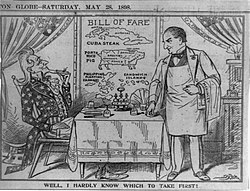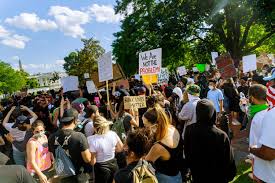The Silenced Voices: Dissent, War, and the First Amendment in a Time of Global Conflict
The Progressive Era, which occurred around World War I, was a period in American history when many people opposed the country's involvement in war. These people would use their voices and speak out against it, but the government did not appreciate that, so they made laws that made it illegal to speak against the war. This led to many people being jailed for expressing their opinions. The Espionage Act of 1917 and the Sedition Act of 1918 were laws enacted by the government to suppress dissent and counteract efforts to undermine the war effort. This shows that it can be challenging, especially when the country is at war. It also leaves us asking how a nation balances national security with the fundamental right to free expression.
Looking back, though, the difficulties of those early dissenters were not in vain. Their persecution helped shape our understanding of the First Amendment. Landmark cases, such as Schenck v. United States, introduced the "clear and present danger" test, which indicates when free speech can be limited. Justice Holmes' powerful dissent in Abrams v. United States introduced the enduring concept of the "marketplace of ideas," which holds that people should be able to exchange viewpoints freely, even if they disagree with some of them, as this process will ultimately lead to the discovery of the truth. The Gitlow v. New York decision was also pivotal, as it established the importance of incorporation, meaning that the protection of the Bill of Rights, which included free speech, was no longer limited to the federal government. They now apply to each state. The battles legally from the silencing of dissent ultimately laid the foundation for our freedoms today.
When I look at the world we live in today, it's filled with war, chaos, and violence. I feel a sense of unease as we repeat history. There is a lack of honesty in mainstream news. If I want to find someone who will speak freely about their viewpoint, I must actively seek them out. Many websites, such as ANTIWAR.COM and The American Conservative, often provide much insight into what mainstream media is saying, making me wonder why. Why do we have to struggle to find certain views or perspectives in this day and age?
This topic prompts me to consider the reasons behind this marginalization. Several factors immediately come to mind that make sense. The first is increased media consolidation, where multiple larger corporations control what we hear, shaping our perceptions based on their desired narratives. Shockingly, this is still ongoing, and it is very risky to narrow the people's perspectives, as they don't want anything to be revealed that might harm their power or the status quo.
There are also significant commercial pressures within mainstream media. After all, mainstream media is a business in its own right. Numerous controversial viewpoints can deter advertisers from associating, which is undesirable, as advertisers are crucial for the survival of mainstream media, as they can drive away specific segments of their audience. The mainstream media is a highly competitive market, so fostering discussions that may be challenging but beneficial is not done, as other priorities take precedence in their eyes.
The government cannot be entirely overlooked in these situations, as it has access to a significant amount of information from various sources, including the framing of narratives that are being disseminated through mainstream media, which individuals in power often shape. There is also immense societal pressure surrounding a single message, which can unintentionally suppress or downplay dissenting voices under the pretext of national unity and security.
As discussed in the videos, the Supreme Court cases involving prior restraint, Near v. Minnesota and the Pentagon Papers, are particularly relevant here. These papers establish that the government cannot prevent something from being published before it is published. The bar for the prior restaurant is relatively high, with specific expectations such as obscenity, immediate threats to national security during wartime, and incitement to violence. The government must justify why these exceptions apply. These rulings undermined the role of the free press and the ability to hold people in power accountable, while also informing the public, even if the information is uncomfortable or challenges the narrative.
With all this being said, the suppression of anti-war voices historically and in society today reveals a sort of tension between the fundamental right to freedom of speech and national security, from silencing dissent, and then the progressive era, to powerful forces being involved in the mainstream media, powerful forces—including media consolidation, commercial pressures. All of these factors influence how society is shaped today. The landmark Supreme Court cases have even clarified the importance of freedom of the press and how the government shouldn't restrict it as much as it does, and if it does, to justify the restrictions. Yet we still struggle to ensure that we have diverse viewpoints, particularly from individuals who challenge narratives of conflict and war. Emphasizes the frailty of these liberties and the need for constant awareness in defense of the First Amendment's values.






No comments:
Post a Comment